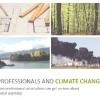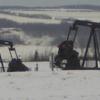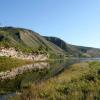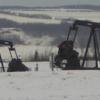Our 2011 report, Professionals and Climate Change, made the case that climate change fundamentally impacts the work and ethical obligations of many different types of professions, and that the professional associations that gover
Environmental Law Alert Blog
Through our Environmental Law Alert blog, West Coast keeps you up to date on the latest developments and issues in environmental law. This includes:
- proposed changes to the law that will weaken, or strengthen, environmental protection;
- stories and situations where existing environmental laws are failing to protect the environment; and
- emerging legal strategies that could be used to protect our environment.
If you have an environmental story that we should hear about, please e-mail Andrew Gage. We welcome your comments on any of the posts to this blog – but please keep in mind our policies on comments.
What to make of the conclusion, courtesy of the National Energy Board’s Joint Review Panel (JRP) considering Enbridge’s proposed pipelines and tankers project, that a catastrophic spill of diluted bitumen (untreated oil sands oil, diluted so that it can be transported by pipe) on BC’s North Coast would only have a short-term impact on the enviro
Canadians may soon know more about the chemicals being used to extract bitumen from Alberta’s tar sands, thanks to West Coast Environmental Law and our colleagues at Environmental Defence and the Association Québécoise de Lutte Contre la
Through that contested landscape runs the Peace River, which drains east from the Rocky Mountains into the Slave River, a tributary to the Mackenzie. Thanks to the sunny southwest aspect of its slopes and long northern summer days, the valley the Peace River cuts contains a unique microclimate that makes it the only lands north of Quesnel capable of producing the widest range of food crops possible in BC, including fruit and vegetables.
We and our allies have emphasized the many and real environmental risks of the Enbridge Pipelines and Tankers Project, the wall of opposition of First Nations, the lack of social licence among British Columbians. The National Energy Board Joint Review Panel, in its recent report recommending that the project be allowed to proceed, had to c
The beginning of the year is a good time for planning, setting goals. And with 2014 shaping up to be an important year for environmentally minded Canadians, here, briefly, are our top 3 resolutions for the coming year.
On Thursday, December 5, 2013, members of the Yinka Dene Alliance, a group of six First Nations in northern BC who have banned the Enbridge Northern Gateway Pipelines from their territ
At some level we are all responsible for climate change. But on another level, the fossil fuel companies whose very raison d’être is to get coal, oil and gas out of the ground, and make it available to our addicted economy, are also responsible.
Several people have asked us what the proposed Water Sustainability Act (on which the BC government is consulting the public until this Friday, November 15th) says about hydraulic fracturing (a.k.a.
Media headlines are trumpeting this week’s agreement between Premiers Christy Clark and Alison Redford regarding tar sands infrastructure in BC.









